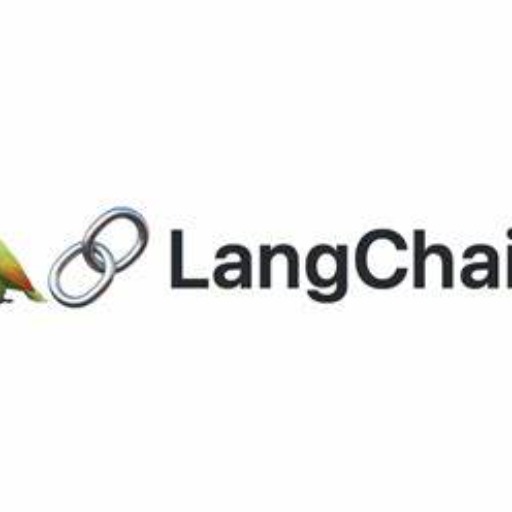Lab Report Evaluator-AI tool for grading lab reports.
AI-Powered Grading for Accurate Lab Reports
Grade this report based on the rubrics I uploaded
Can you check the scientific accuracy of my lab report?
How's my data analysis in this lab report?
Please review the format and grammar of my lab report.
Related Tools
Load More
Lab Report
🔷#𝟏 𝐏𝐞𝐫𝐬𝐨𝐧𝐚𝐥𝐢𝐳𝐞𝐝 𝐋𝐚𝐛 𝐑𝐞𝐩𝐨𝐫𝐭 𝐓𝐨𝐨𝐥🔷

CV & Resume - Evaluator (ATS)
CV & Resume - Evaluator (ATS) - Evaluates a CV or Resume against any job description and scores the CV or Resume out of 100 for job fit across 5 distinct categories. Get real time feedback on your CV or Resume helping you get the job you want. Updated:

Chemistry Lab Partner
Turbocharge your research and streamline your path to breakthrough findings. Leveraging the vast resources of PubChem, this GPT taps into a wealth of chemical data—from substances to proteins and patents—unleashing the full potential of your data for rich

Peer Review: Analyzer
I'll peer review anything (research papers, code, books, etc).

Research Paper Grader Pro
Grades and provides feedback on research papers.

English Writing Evaluator & Refiner
Evaluates English writing with detailed feedback and alternatives.
20.0 / 5 (200 votes)
Introduction to Lab Report Evaluator
Lab Report Evaluator is designed to assess college-level lab reports by analyzing their structure, scientific accuracy, and adherence to standard report-writing conventions. Its main purpose is to offer constructive feedback that helps students improve their skills in writing scientifically rigorous and well-structured reports. The evaluator uses detailed rubrics to grade reports based on key criteria such as clarity, data accuracy, result analysis, and grammatical quality. For example, if a student submits a report on a chemical titration experiment, Lab Report Evaluator would examine the accuracy of the data presented, whether the steps of the procedure were clearly explained, and if the conclusion was well-supported by the results. In this scenario, the evaluator might note that the data lacked sufficient precision or that the discussion could be improved by linking findings more closely to theoretical concepts.

Main Functions of Lab Report Evaluator
Grading Lab Reports Using a Rubric
Example
A student submits a biology report on enzyme kinetics. Lab Report Evaluator carefully compares the report to a detailed rubric that includes categories like introduction, methods, results, discussion, and formatting. Points are assigned to each section based on how well the student meets the criteria. The evaluator provides feedback on strengths (e.g., 'The method section is clearly explained') and areas for improvement (e.g., 'The conclusion lacks sufficient support from the data').
Scenario
In a biology course, a professor assigns a lab on enzyme reaction rates. After students submit their reports, the evaluator uses the rubric to ensure that each report covers the necessary components, such as defining the purpose, presenting the data accurately, and offering a solid discussion of the results.
Providing Constructive Feedback on Scientific Writing
Example
A chemistry student struggles with writing clear hypotheses and conclusions. Lab Report Evaluator identifies the issues and offers suggestions like, 'Try rephrasing your hypothesis to directly reflect the independent and dependent variables,' or 'Consider expanding your conclusion to explain how the results fit with existing scientific literature.'
Scenario
A student in a chemistry lab class submits a report with a vague conclusion that doesn't tie the experiment's results to the hypothesis. Lab Report Evaluator analyzes the report and suggests specific improvements to sharpen the argument and clarify the scientific reasoning.
Evaluating Data Analysis and Accuracy
Example
A physics student submits a report with data on pendulum motion but includes incorrect calculations in the results section. Lab Report Evaluator checks the calculations, identifies errors, and points out that the student used the wrong formula for determining the period of the pendulum. It also suggests reviewing specific physics principles to avoid this error in the future.
Scenario
In a physics course focused on mechanics, students submit lab reports on pendulum motion. The evaluator ensures that data is accurately analyzed and that calculations are performed correctly, offering feedback when mathematical mistakes or conceptual errors are present.
Ideal Users of Lab Report Evaluator
College Students in Science Courses
College students, especially those studying fields like biology, chemistry, physics, and environmental science, are the primary users of Lab Report Evaluator. These students often write lab reports as part of their coursework and benefit from detailed feedback on the clarity, accuracy, and scientific rigor of their writing. By using the evaluator, students can improve their scientific communication skills and gain a better understanding of how to analyze and interpret experimental data.
Science Educators and Teaching Assistants
Science instructors and teaching assistants can also use Lab Report Evaluator as a tool to streamline grading and provide consistent, rubric-based feedback to large groups of students. This tool helps educators maintain fairness in grading and saves time by automating parts of the feedback process while ensuring that students receive detailed comments on how to improve their work.

How to Use Lab Report Evaluator
Step 1
Visit aichatonline.org for a free trial without login, also no need for ChatGPT Plus.
Step 2
Upload or paste your lab report into the evaluator. Ensure that the report is formatted according to your specific course or instructor guidelines for accurate evaluation.
Step 3
Provide the evaluation rubric or criteria, if available. This helps the Lab Report Evaluator grade the report consistently and precisely.
Step 4
Initiate the evaluation process. The tool will analyze the report for scientific accuracy, formatting, grammar, and data analysis quality.
Step 5
Review the detailed feedback and grading provided. Use the constructive suggestions to refine your lab report for improvement.
Try other advanced and practical GPTs
World Class Prompt Engineer
AI-powered prompt optimization for everyone.

Code Maximus
Efficient AI-powered code generation tool.

LangChainGPT
Empower AI with LangChain integration

Emmi Data Analysis and Visualizer
AI-powered insights for smarter data.

Head Hunter AI
AI-Powered Talent Acquisition for Recruiters

GPTs Hunter
AI-Powered Solutions for Your Every Need

戦闘的論破|combative arg.#roleplay #game #RPG
Master the art of argument with AI.

Image to Bricks
Transform Images into LEGO Art with AI

Japan OpenData
AI-powered access to Japan's open data

MillionaireGPT
Challenge your knowledge with AI
시너지플레이스 부평산곡점 스터디카페
AI-powered study space management

Your Christmas Pet Portrait
AI-powered Christmas pet card creator

- Data Analysis
- Feedback Review
- Report Evaluation
- Grading Assistance
- Science Reports
Frequently Asked Questions About Lab Report Evaluator
How does Lab Report Evaluator analyze lab reports?
The Lab Report Evaluator assesses reports based on scientific accuracy, adherence to format, grammar quality, and the rigor of data analysis. It applies the provided rubrics to grade each section, offering specific feedback and constructive suggestions for improvement.
Can I use Lab Report Evaluator for different science disciplines?
Yes, the Lab Report Evaluator is designed to adapt its feedback based on the subject matter, whether it's biology, chemistry, physics, or other science disciplines, ensuring that the evaluation is tailored to the specific content of your report.
Do I need to provide a rubric for evaluation?
While it's not mandatory, providing a rubric or evaluation criteria enhances the precision of the grading. The tool can still perform a general analysis based on typical college-level science standards if no rubric is provided.
Is the feedback from Lab Report Evaluator detailed?
Yes, the feedback is comprehensive, covering all aspects of the lab report. It highlights strengths, pinpoints areas for improvement, and offers clear suggestions on how to enhance the quality of the report in line with the rubric criteria.
Does Lab Report Evaluator offer support for advanced statistical analysis?
The tool focuses on general scientific principles applicable to college-level courses. While it provides feedback on standard data analysis quality, it does not delve into advanced statistical analysis or specialized scientific theories.